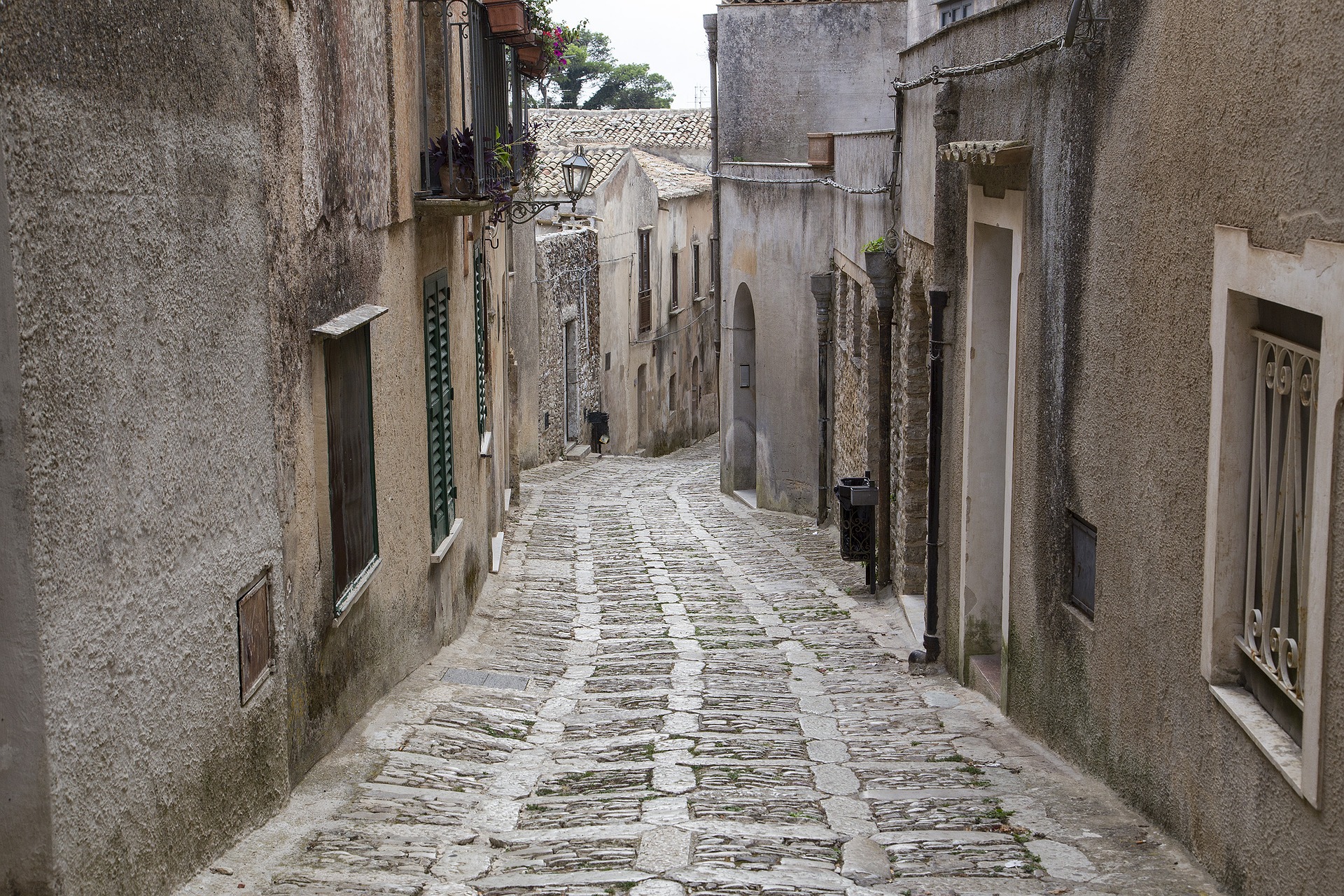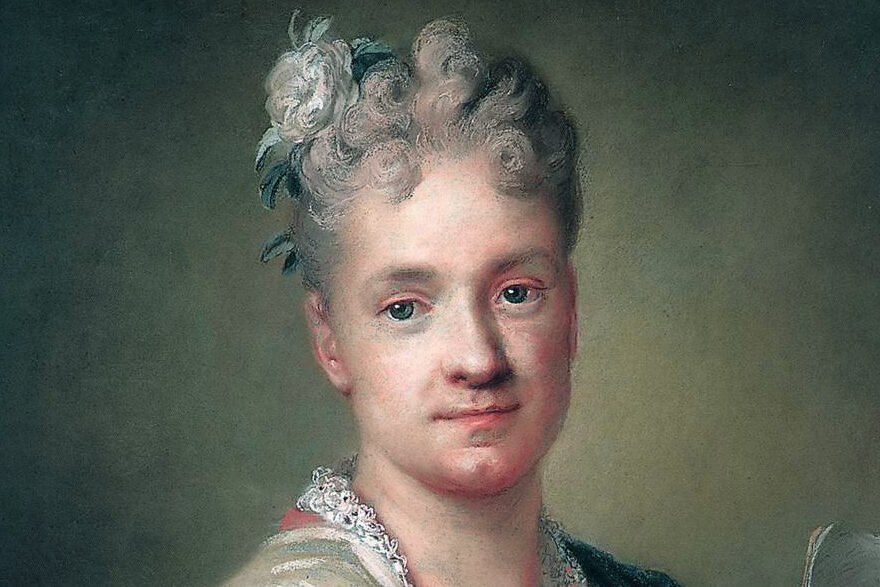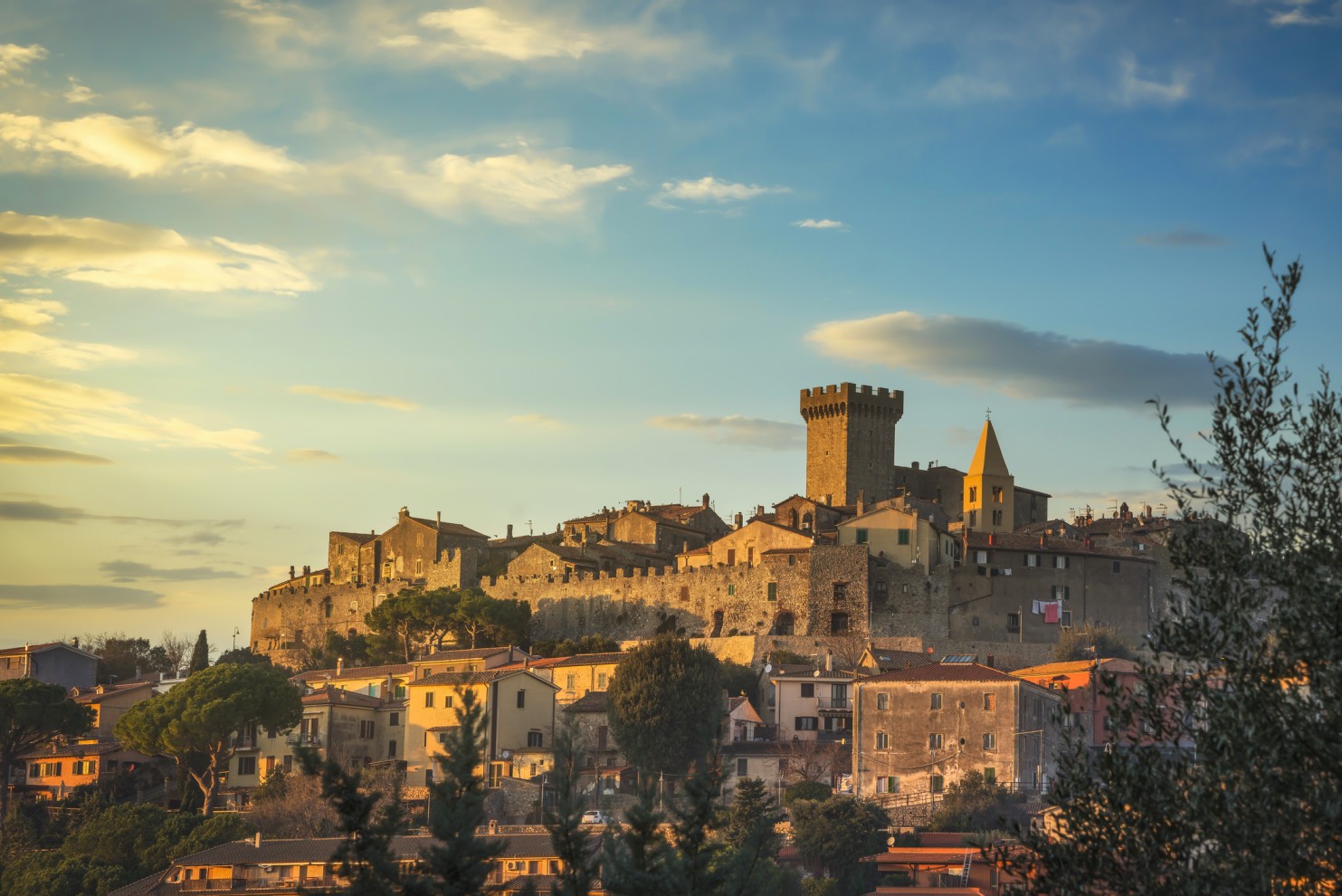Towering 2,460 feet above Trapani on the Mediterranean Sea in northwest Sicily, the ancient citadel of Erice has found a new outlook by catering to the wedding trade.
Today its 12th-century Norman castle serves as the backdrop for hundreds of couples who take their vows in a scenic and storied site that has retooled itself in modern times by offering both a setting and system that streamlines the notorious Italian bureaucracy and makes getting married relatively easy.
Couples travel from across the world for storybook weddings as Americans, Russians, Canadians and even the Chinese discover the Mediterranean gem.
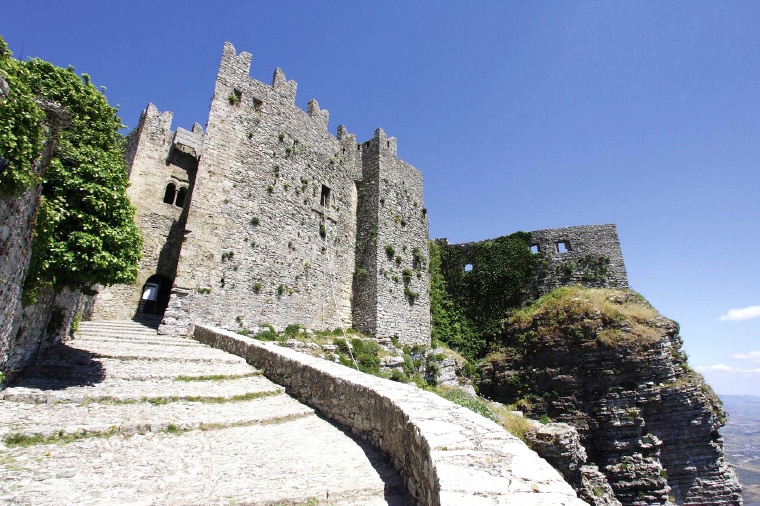
Jon Van Housen, an American expat living in Milan, said after previous transactions with the labyrinthine Italian bureaucracy, he was daunted by the paperwork, waiting period and official stamps it takes to get married.
But city officials in Erice smoothed the way. “I don’t think they could have done more to make things happen,” he says. “The mayor, complete with traditional sash of office, even married us.”
But it was not only about efficiency. “They made us feel at home from the very first minute. It has the warmth and color of an ancient Italian village – mostly pedestrian with winding cobblestone streets – and the setting is absolutely stunning,” he says.
It offers a truly memorable backdrop for weddings and honeymoons: ancient ruins, historic sites and churches amid sweeping views of the sea, the beach resort of Trapani below and the rugged Sicilian coastline.
But many find the real charm is the dazzling panoramas from discreet spots and secret hideaways.
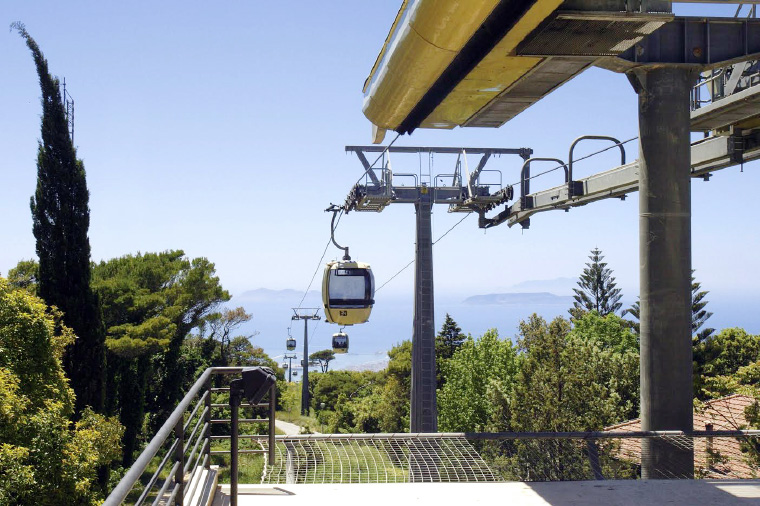
“The City of Erice offers the couples the possibility to celebrate their marriage in extraordinary venues such as the Castle of Venus and the Spanish Quarter,” says Mayor Erice Giacomo Tranchida. “This becomes a way of promoting our marvelous city, a unique channel of communication to attract other visitors to admire the cultural and natural beauties of our city and fall in love with it.”
Erice was founded by the Elimi people who came from Greece around the 8th Century B.C. It was a religious center of vital interest and site of the sacred Thémenos, a pagan sanctuary dedicated to Venus, the Goddess of Love. Later it was of strategic importance to the Carthaginians, who strengthened the walls built by the Elimi, making the city impregnable. Together with Syracuse and Enna, Erice was one of their three-most important Sicilian strongholds.
It was renamed many times over the centuries: Erix, Iruka, Gabel-el-Hamid, Monte San Giuliano and Erice. Arab geographers described it with great fanfare as an area extremely rich in water — about 400 water sources. When conquered by the Normans, the city rose in all its splendor. King Roger II changed the name into Monte San Giuliano because the patron saint of sailors Saint Julian was said to have helped Norman troops to prevail and take the city from the Arabs. In 1936, Erice finally took on its current name.
History comes alive today as couples get married in the Castle of Venus atop Mount Erice, sited in a privileged, breathtaking position. The mountain served as a navigational landmark for sailors in ancient times.
Yet it was always associated with romance and passion. In ancient times Erice was known for its temple dedicated to the Goddess of Love. The Phoenicians called her Astarte, the Greeks Aphrodite and the Romans knew her as Venus, a goddess whose cult spread from Erice throughout the Mediterranean Sea.
What remains today of the ancient fortress was built by the Normans who re-used some original stone from the Temple of Venus. The castle is available for exclusive use in wedding rites and celebrations.
The city can be accessed by a winding mountain road or cable car from the resort town of Trapani, which is itself on the peninsula that marks the division between the Tyrrhenian Sea and the greater Mediterranean. Trapani has also been noted since Roman times for its favorable location along the migratory path for the magnificent Atlantic bluefin tuna.
“We fell in love with the massive cliffs and the pulsing blue sea seen from the town of Erice,” says Van Housen. “ Nature looked almost African as the summer heat penetrated the island’s primeval bones. It was a powerful experience”.
How to get there:
Trapani is served by daily flights from Ryan Air. An overnight ferry arrives daily from Naples.
Erice can be accessed by cable car from 10 a.m. to midnight.
Where to stay:
Hotel Baia dei Mulini, Lungomare Dante Alighieri, Erice. Tel: 0039 0586 409875
Tonnara di Bonagia Resort, Bonagia, Valderice.
Email: info@tonnaradibonagia.it
Best time to go:
From May to November.
Booking a ceremony:
City of Erice, Mayor’s office
Email: francesca.rimpici@ comun.erice.tp.it
